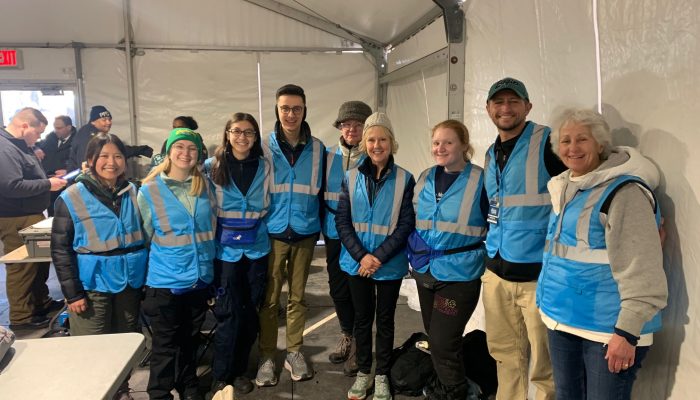Intimate partner violence (IPV) is common and especially dangerous during and shortly after pregnancy. An important new public health campaign highlights things you can do to help pregnant people who are being abused by intimate partners.
A recent Health Department study found that close to nine percent of people reported some form of IPV during or after pregnancy (see CHART). In Philadelphia, 21 percent of people who died within a year of a pregnancy had some documentation of IPV in their medical records between 2013 and 2018 (see Improving Outcomes: Maternal Mortality in Philadelphia).
People who are pregnant are more likely to be killed by an intimate partner than those who are not pregnant. Also, people who are being abused by intimate partners often don’t tell other people about the abuse. This needs to change. Now.
With a federal grant from the Office of Women’s Health, the Health Department and Office of Domestic Violence Strategies are working to improve local responses to IPV for pregnant people. This includes bringing people together from health systems and domestic and sexual violence agencies to work on this response. Funding from this grant was also used to create a new public health campaign, which was seen this past fall on select SEPTA bus lines and online.
The public education campaign raised awareness about IPV and about people not knowing when someone close to them is being abused. The takeaway is this: your time with a pregnant family member, friend, or client may be the only time they feel safe. If you suspect that someone you know is being abused, you can A.C.T., or Ask, Connect, and Tell, by taking a few simple steps:
- Ask them if they feel safe. It’s often hard for survivors of intimate partner violence to talk about their experiences. Believe them and validate their experience. Once you’ve determined that they feel safe, try using open-ended questions to get more information about what they are experiencing and how you can help. Open-ended questions have more than a one-word answer. “What is it like when you and your partner fight?” is an example.
- Connect them with resources if they’re ready. The Philadelphia Domestic Violence Hotline, at 866-723-3014, is a great place to start. Staff there can help survivors with safety planning, referrals to legal resources, places to stay, and other resources. Let them know if they’re not ready to make changes, that’s ok.
- Tell them you’re there for them. You can be a resource of strength and support. Use affirming statements such as, “I believe you,” “Thank you for trusting me with this,” “I’m here for you,” and, “I’m so sorry you experienced that. It’s not your fault.” You can be helpful and supportive even if you’re not able to fix someone’s situation.
Resources for pregnant people experiencing IPV
If you think that your relationship is abusive, or if you think someone you know is being abused, call the 24-hour Philadelphia domestic violence hotline at 866-723-3014. Language interpretation is available.
Request palm cards or posters for your office or workplace with information on pregnancy and IPV.
For connection to services for families, including doula support, breastfeeding and chestfeeding, safe sleep resources and more, visit Philly Loves Families.
Connect with services for survivors of domestic violence and sexual assault in Philadelphia.
Watch a recording of a webinar on IPV and pregnancy with the Office of Domestic Violence Strategies and the Health Department’s Division of Maternal, Child, and Family Health.




